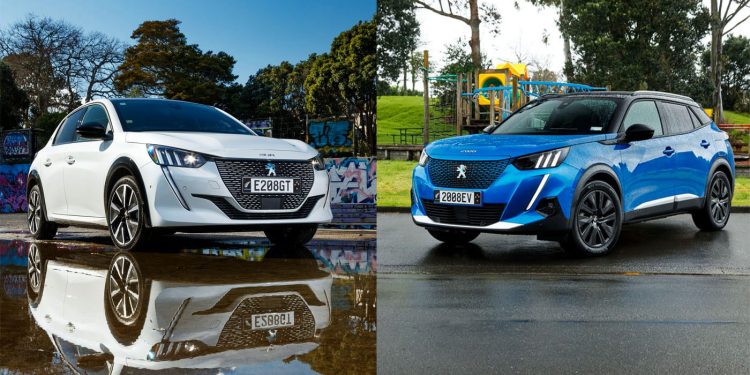Peugeot wants to be the cleanest Euro brand in NZ
As a brand, Peugeot has had its ups and downs over the past twenty years here as it has struggled to secure the right cars for our market.
In the early 2000s, it was the leading European brand in terms of sales but French-centric products, often with the wrong transmission for NZ, has stymied any real success here in the intervening years.

However, the Lion is reinvigorated in New Zealand, spurred on by the recent Clean Car announcements and local head, Chris Brown, told us of their desire to be the leading European ‘low emission brand’ in the country. And he’s put a line in the sand saying by the end of 2022, Peugeot’s fleet CO2 average will be under 99g/km. And that’s on the back of decent volumes too, with a forecast for over 3000 sales.
That’s big for the brand here, but driving the change will be electrified vehicles that will account for more than one third of that volume. Much of that relies on a constant supply, which has been another thorn in the side of Peugeot NZ over the past decade. However Brown said that with the announcement of the rebate, New Zealand’s status changed with the factory. It has given them much greater negotiating power to fight for the volumes they need to achieve the forecasted sales targets.

He says Stellantis, the new super group that Peugeot belongs to, does not want to pay any penalties in terms of overshooting government set CO2 targets, which are coming for New Zealand as part of the proposed Clean Car Standard. Potentially, Peugeot could be in an enviable position of being in credit of the system which will see a car company have to pay a fee if its average CO2 level is above a set target. But there are still many details to be fleshed out with the new legislation, on which we should see a draft next month. But the devil is in the details with lots to thrash out at the submission and select committee stages. So we’ll wait and see.
For Peugeot NZ to reach the 99g/km CO2 average, it will require a reduction of 20 per cent on its current emissions levels, but electrified vehicles will lead the way for the brand here. Already it has launched the 3008 PHEV, while the e-208 and e-2008 arrive here soon. These two are copies of their ICE cousins, the platform designed for both engines/fuel tanks and motors/batteries. And as such there is no difference in boot size for instance. Both the e-208 and e-2008 use the same 100kW motor and 50kWh battery, the smaller, lighter (by around 100kg) e-208 is good for 340km (WLTP rated), the e-2008 rated at 320km. The hatch is $59,990, the 2008 is $69,990. Peugeot NZ has sold its first allocation of 100 cars, those arriving in the next two months. Order one today, and you’re looking at delivery in January 2022. But then the wait on all Peugeot’s is about the same as the firm grapples with chip shortages and international logistics.

Peugeot NZ also has another 3008 PHEV on the horizon, a front-wheel drive version with 165kW, an EV range of 48-54km, and a price tag under the important $80k mark so that it qualifies for the rebate. The new 308 will also offer a PHEV with almost 60km of EV driving ability, and a 508 GT plug-in with the aim of getting it here under $80k too. There’s talk of the 508 Sport Engineered hybrid which brings 265kW, 520Nm and AWD but it’ll be hard to see that being less than $80k.

Peugeot also has electric vans to offer in 2022 with the e-Expert (100kW motor, 75kWh battery, 330km range, 1226kg payload and 1000kg towing) and the smaller e-Partner (100kW motor, 50kWh battery, 245km range, 800kg payload) to help the cause. And its network coverage will see it with 13 EV complaint dealers spanning the length of the country. As Brown said, there’s a sense of electricity in the air at Peugeot at the moment. Groan.





